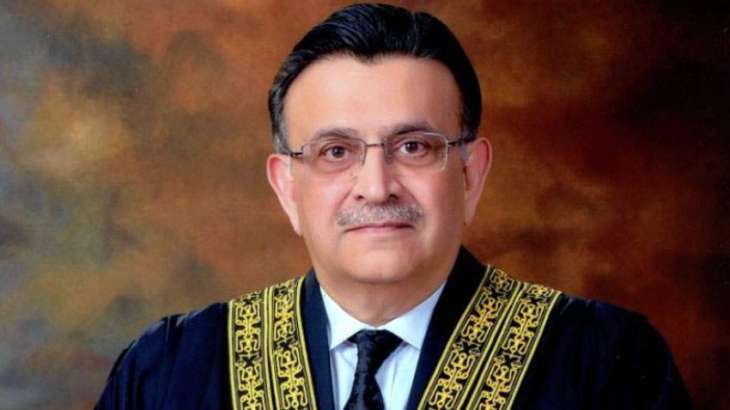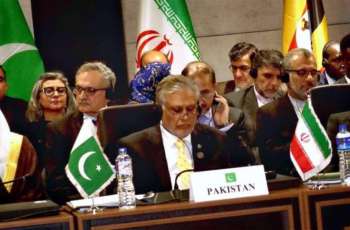The top court has also ordered the NA speaker to hold the session on Saturday, no later than 10: 30 am and held that the speaker cannot prorogue the assembly and cannot end the session if the no-trust motion fails or after a new prime minister is elected if a no-confidence motion is passed.
ISLAMABAD: (UrduPoint/Pakistan Point News-April 8th, 2022) The Supreme Court has declared the ruling by the deputy speaker unconstitutional and ordered the restoration of National Assembly and the Cabinet.
A short order signed by all five members of Supreme Court larger bench headed by Chief Justice Umar Ata Bandial set aside the ruling given by the Deputy Speaker on the floor of the House on April 3 regarding the resolution for a vote of no-confidence against the prime minister under Article 95 of the Constitution, declaring it to be contrary to the Constitution and the law, and of no legal effect.
The apex court's five-member larger bench — headed by Justice Bandial and comprising Justice Muneeb Akhtar, Justice Aijazul Ahsan, Justice Mazhar Alam, and Justice Jamal Khan Mandokhel — heard the case and then later issued the ruling.
It declared that the National Assembly was in existence at all times, and continued to remain and be so.
The order declared that the resolution was pending and subsisting at all times, and continued to so remain pending and subsisting. It said that the session cannot be adjourned till the conclusion of the no-trust motion against the Prime Minister.
The prime minister, Federal ministers, ministers of state, advisers etc. stand restored to their respective offices as on April 3.
The Supreme Court ordered National Assembly Speaker Asad Qasier to hold the session on Saturday (April 9) and mentioned the time as no later than 10:30am to allow the vote on the no-confidence motion against the premier.
The court order read, "In consequence of the foregoing, it is declared that at all material times the Prime Minister was under the bar imposed by the Explanation to clause (1) of Article 58 of the Constitution and continues to remain so restricted. He could not, therefore, have at any time advised the President to dissolve the Assembly as contemplated by clause (1) of Article 58,".
It also held, "In consequence of the foregoing, it is declared that the advice tendered by the Prime Minister on or about 03.04.2022 to the President to dissolve the Assembly was contrary to the Constitution and of no legal effect,".
The top court also held that the assembly was in existence at all times, and continues to remain and be so". The SC also held that the speaker cannot prorogue the assembly and cannot end the session if the no-trust motion fails or after a new prime minister is elected if a no-confidence motion is passed.
The top court also decided that no member would be barred from casting their vote, holding that if the no-trust motion failed then the government would continue to carry out its affairs.
The SC held that if if the no-confidence motion against the prime minister succeeded, then the assembly would appoint the new prime minister.
The CJP had also observed that the court would move forward only after seeing national interest and practical possibilities. The CJP had also held that the deputy speaker's ruling was, prima facie, a violation of Article 95, as the apex court resumed deliberation over the "unconstitutional" act by Suri for the fifth consecutive day on Thursday.




